Publications
-
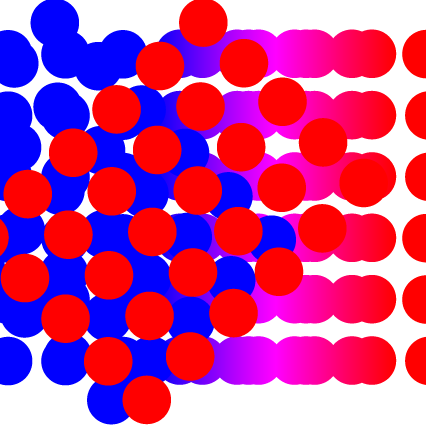 “Wildekeit” und Widerspruch. Poetik der Diskrepanz bei Konrad von Würzburg
“Wildekeit” und Widerspruch. Poetik der Diskrepanz bei Konrad von Würzburg
-
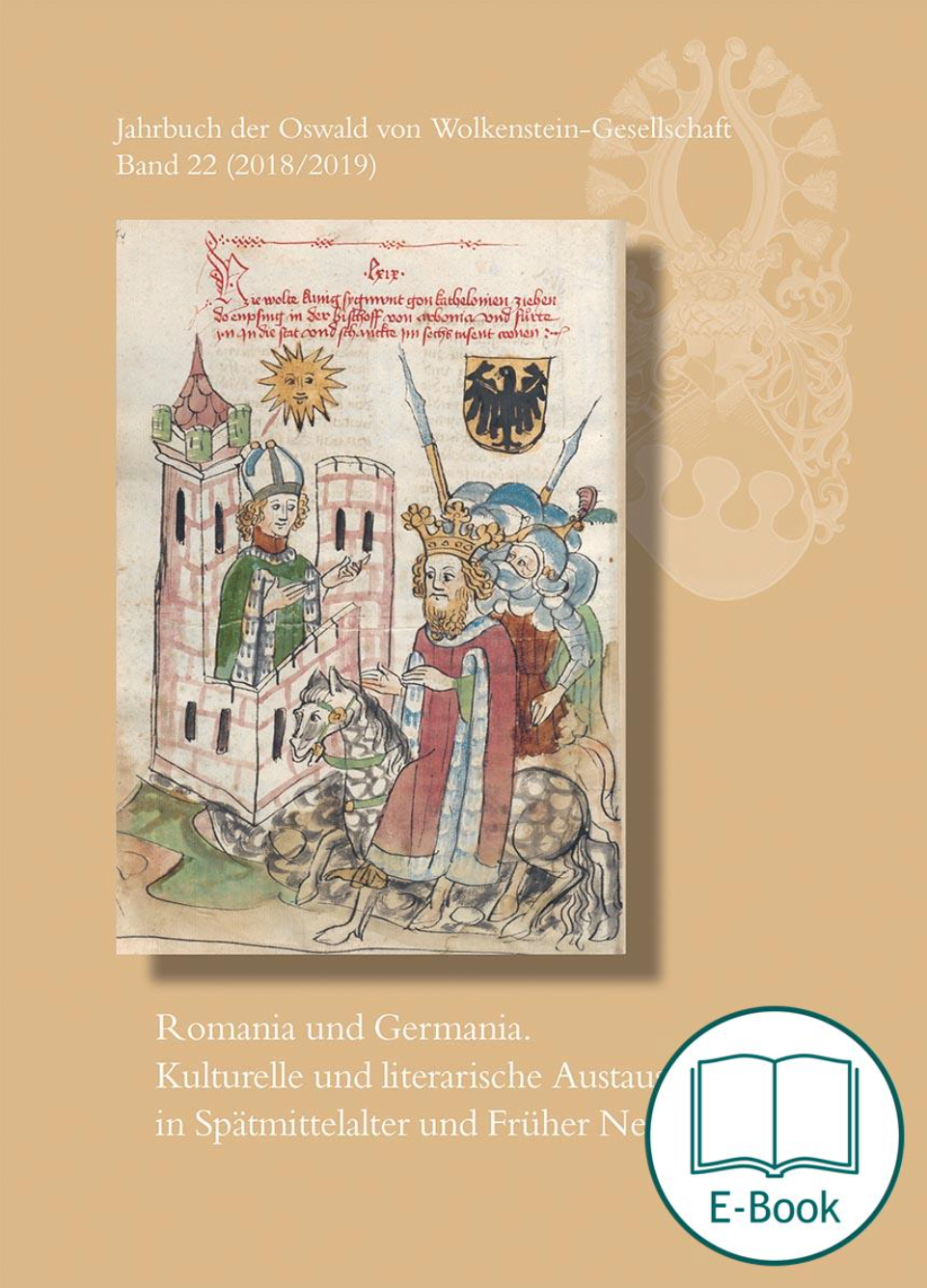 Erzähllogiken transnational. Narratologische Aspekte der Rezeption französischer Heldenepik in frühneuhochdeutscher ProsaErzähllogiken transnational
Erzähllogiken transnational. Narratologische Aspekte der Rezeption französischer Heldenepik in frühneuhochdeutscher ProsaErzähllogiken transnational
-
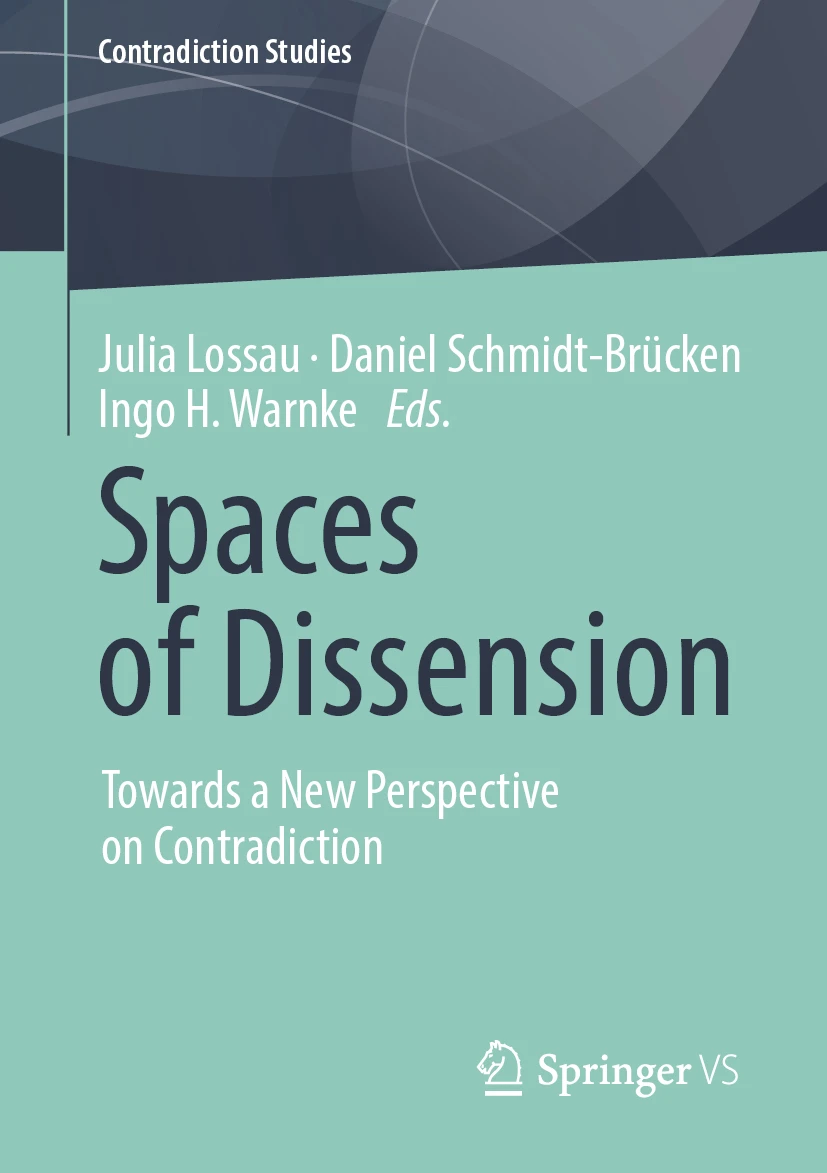 Knowledges and Contradictions in Premodern Narratives.
Knowledges and Contradictions in Premodern Narratives.Contradiction is not just a (post-)modern phenomenon. In premodern narratives, conflicting concepts and logical inconsistencies are omnipresent. This paper focuses on contradictions interdependent with knowledge: Traditional narratives may aggregate different versions of matters rooted in collective memory (heroic epic) or authoritative sources (romances of antiquity), sometimes without concern for the consistency of their own story. Narrative texts may use contradiction for didactic purposes. Contradictions may result in both construction and deconstruction of knowledge. Strategies of irritation and ambiguity involve recipients in the production of meaning. Thus, the concept of contradiction is apt to redefine premodern narrative strategies.
-
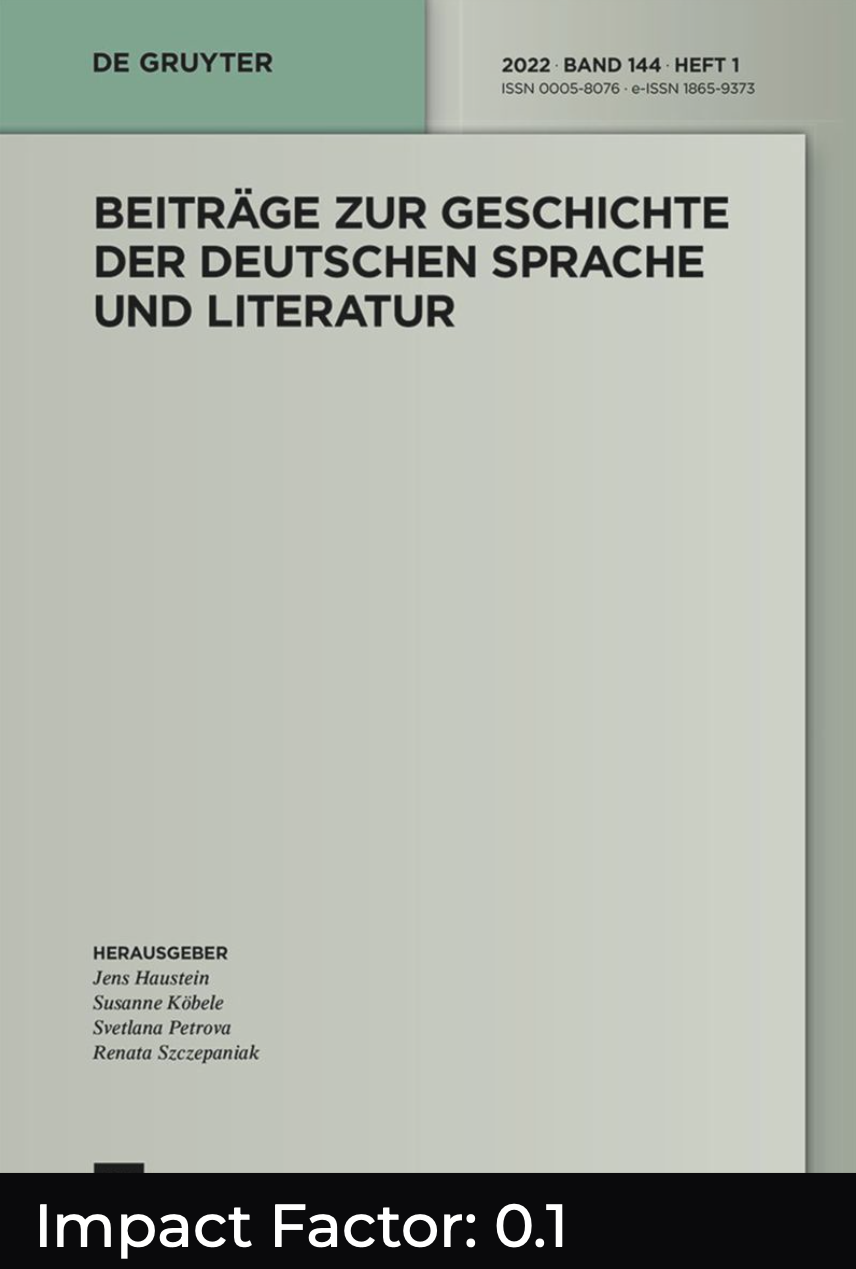 Widersprüche in heldenepischem Erzählen
Widersprüche in heldenepischem ErzählenThis article (re-)examines (marked) inconsistencies and incompatibilities in Middle High German heroic epic. Those contradictions may result from oral tradition, from the difficulties of transfering oral narratives into literacy, from the conditions of performing from memory, or from traditional narrative regularities of the genre. Frequently, they are striking side effects of a type of narration which is paradigmatic instead of syntagmatic, elliptic and aggregative, scenic and final, and therefore highly tolerant against contradictions of any kind. Contradictions and inconsistencies are (consciously or unconsciously) used (and imitated) as one of the constitutive stylistic features of heroic epic. In some cases, moreover, contradictions and inconsistencies are obviously part of an intentional poetics of contradiction ostentatiously accumulating and exhibiting different layers of knowledge and meaning. The textual strategies of heroic epic, in some respect perhaps of premodern narration in general, tend to favour discrepancies, contrasts, and contradiction instead of nuances, compromises, and smooth transitions.
-
 Spaces of Dissension
Spaces of DissensionThis volume focusses on contradiction as a key concept in the Humanities and Social Sciences. By bringing together theoretical and empirical contributions from a broad disciplinary spectrum, the volume advances research in contradiction and on contradictory phenomena, laying the foundations for a new interdisciplinary field of research: Contradiction Studies. Dealing with linguistic phenomena, urban geographies, business economy, literary writing practices, theory of the social sciences, and language education, the contributions show that contradiction, rather than being a logical exemption in the Aristotelian sense, provides a valuable approach to many fields of socially, culturally, and historically relevant fields of research.
-
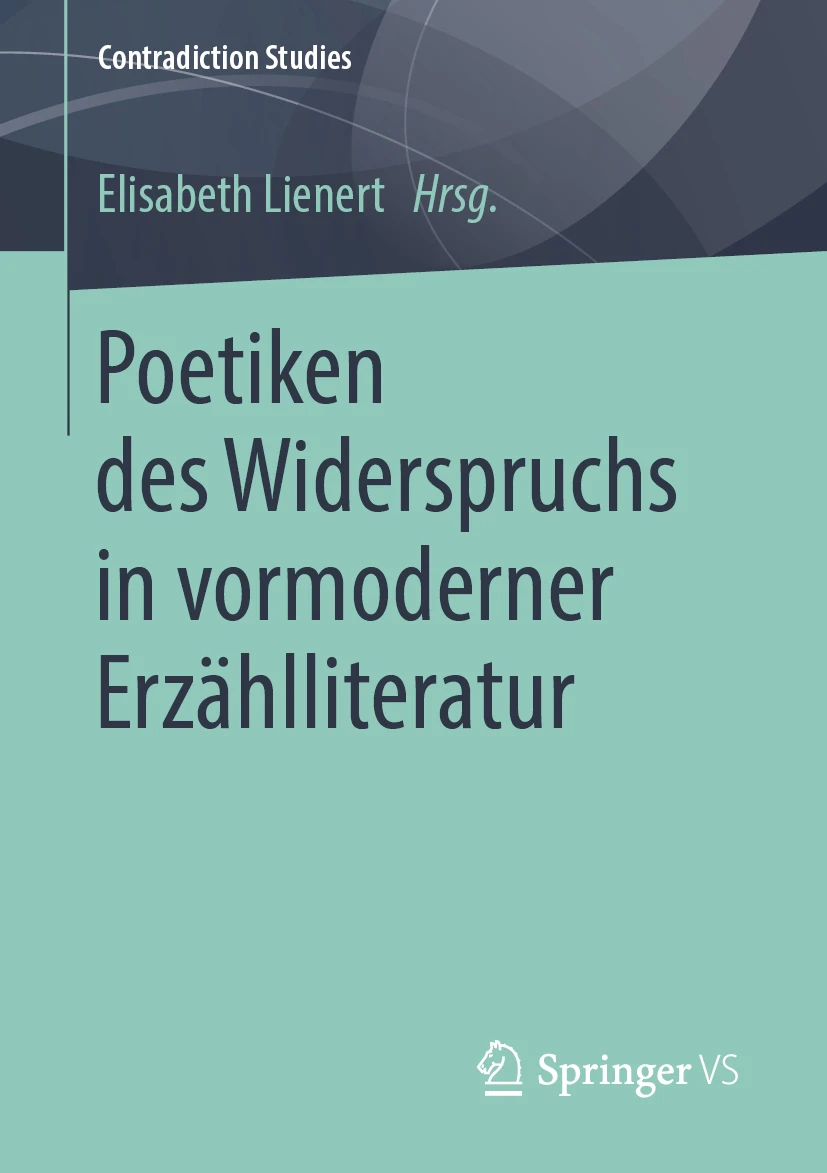 Poetiken des Widerspruchs in vormoderner Erzählliteratur
Poetiken des Widerspruchs in vormoderner ErzählliteraturDieser Band enthält grundsätzliche Überlegungen und textbezogene Fallstudien zu poetologischen Potenzialen von Widersprüchen und Verwandtem in deutschen und europäischen Erzähltexten vom 12. bis zum 17. Jahrhundert. Untersucht werden Akte der Widerrede und Phänomene der Unvereinbarkeit, widersprüchliche Konzeptualisierungen und narratologische Brüche, epistemologische Bedingungen der Wahrnehmung von Widersprüchlichkeit, Aspekte einer Poetologie des Widerspruchs als Mittel der Sinnkomplexion.
-
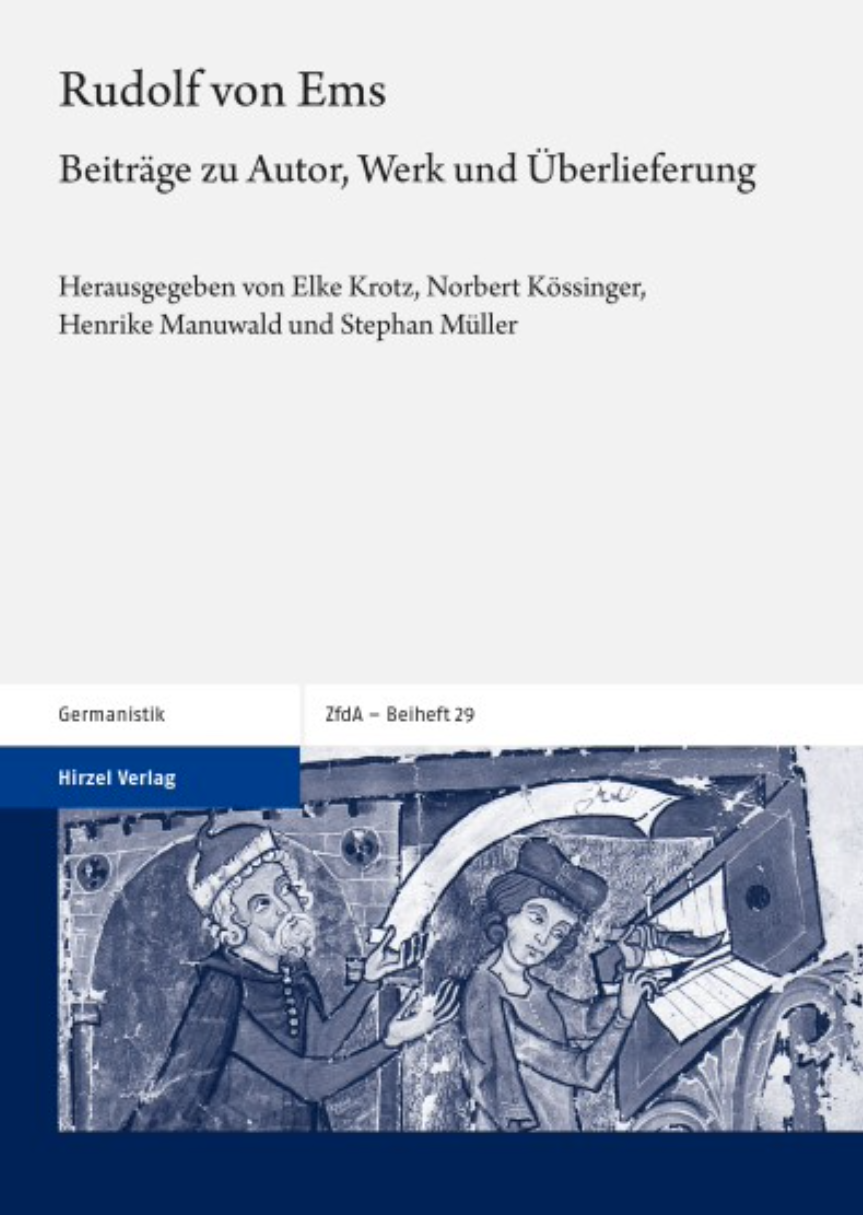 Idealisierung und Widerspruch. Zur Figurenkonstitution von Rudolfs von Ems Alexander.
Idealisierung und Widerspruch. Zur Figurenkonstitution von Rudolfs von Ems Alexander.
-
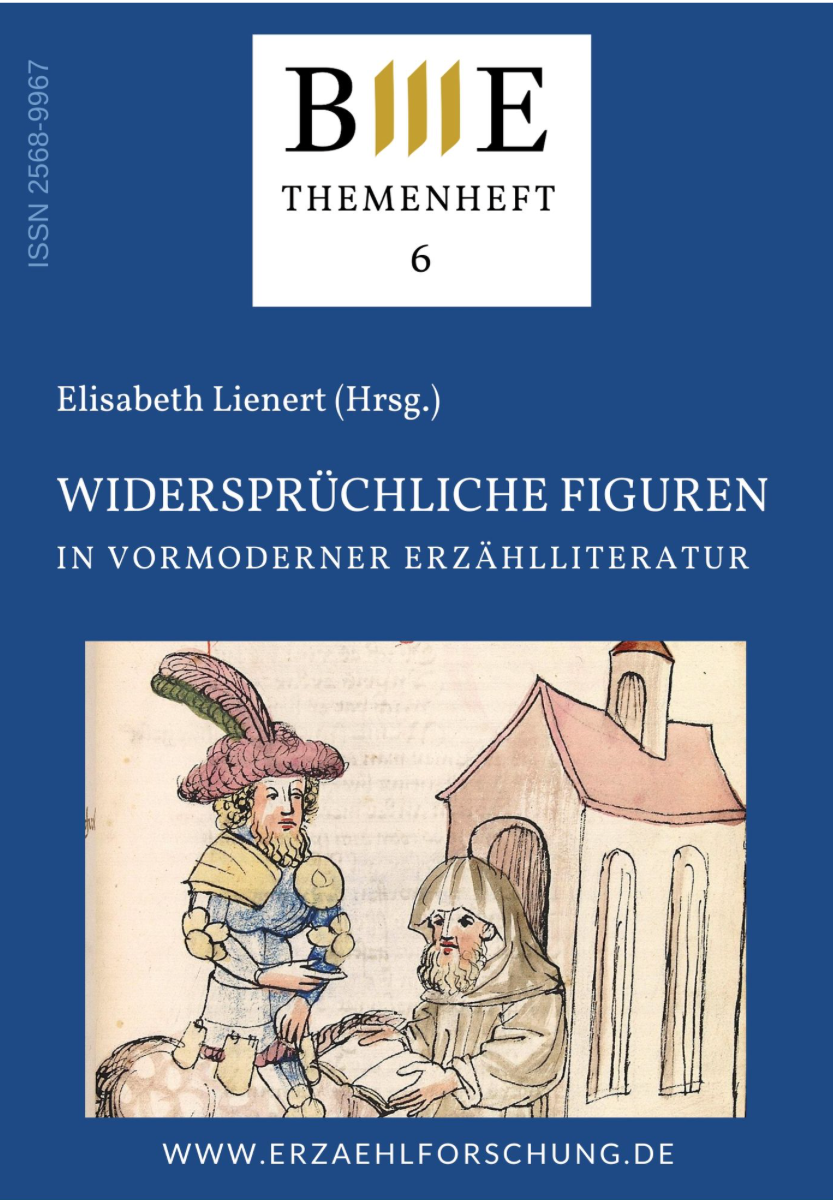 Herrschaft und Macht im Widerspruch. Problematische Könige im ›Nibelungenlied‹
Herrschaft und Macht im Widerspruch. Problematische Könige im ›Nibelungenlied‹Using the examples of Gunther, Siegfried, Dietrich of Bern and Etzel in the ‘Nibelungenlied’, the lecture examines contradictions between royal rank and actual power to act, between the actions of rulers and the discourse of domination. They point to the genre-typical self-portrayal of the warrior nobility in the heroic epic and to the primacy of material history and the finality of the plot over the constitution of the characters, which in this respect is only ‘subordinately’ contradictory, but also to shifts in the discourse of rulership.
-
 Einleitung. Was ist eine widersprüchliche Figur?
Einleitung. Was ist eine widersprüchliche Figur?
-
 Widersprüchliche Figuren in vormoderner Erzählliteratur
Widersprüchliche Figuren in vormoderner ErzählliteraturContradictory characters are characters whose internal characterization in the text is contradictory or who are designed in and as a contradiction to discourses and traditions external to the text. The volume contains case studies from Virgil to the early New High German prose novel and the modern reception of the Nibelungen, combined with methodological considerations in the field of tension between character narratology, dialog research, historical anthropology and discourse analysis. The peculiarities of medieval-early modern narrative (above all the trans-textuality of many characters and their connection to plot or script) become just as clear as the necessity of reflecting on epochal clichés. The contributions invite us to think further about contradiction as a category of character narratology.
-
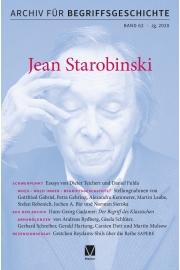 Begriffsgeschichte und Einzelwissenschaften
Begriffsgeschichte und Einzelwissenschaften
-
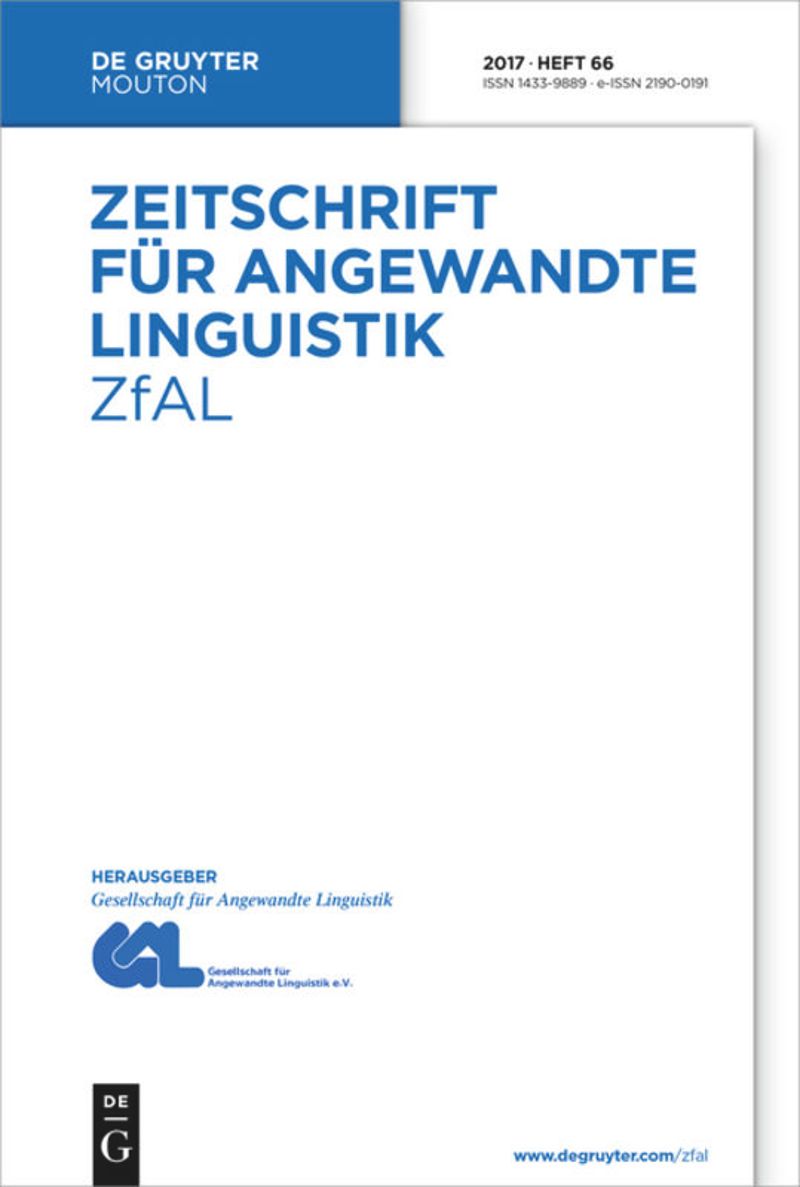 Marginalisierung in der Marginalität? Ein Blick auf digitale Räume anhand sprachlicher Konstruktion von randständigen Positionen im Kontext von Asexualität
Marginalisierung in der Marginalität? Ein Blick auf digitale Räume anhand sprachlicher Konstruktion von randständigen Positionen im Kontext von AsexualitätThis article discusses marginalisation in internet forums and blogging platforms using the example of asexuality blogs and discussion threads. While large corpora of both English and German, such as COCA and DeReKo, contain hardly any mention of asexuality and these few instances of asexuality and related expressions typically refer to plant biology, online communities do discuss aspects of life as an asexual person and their experiences of marginalization even within the LGBTQ community. Definitions of asexuality, including its delineation from other identities, and how asexual people articulate conflicts and other issues on these online platforms are discussed in detail. Particular attention is paid to how this particular group is constructed by others, how they construct themselves as not being part of the mainstream, and the role (self-)marginalisation plays in this context.
-
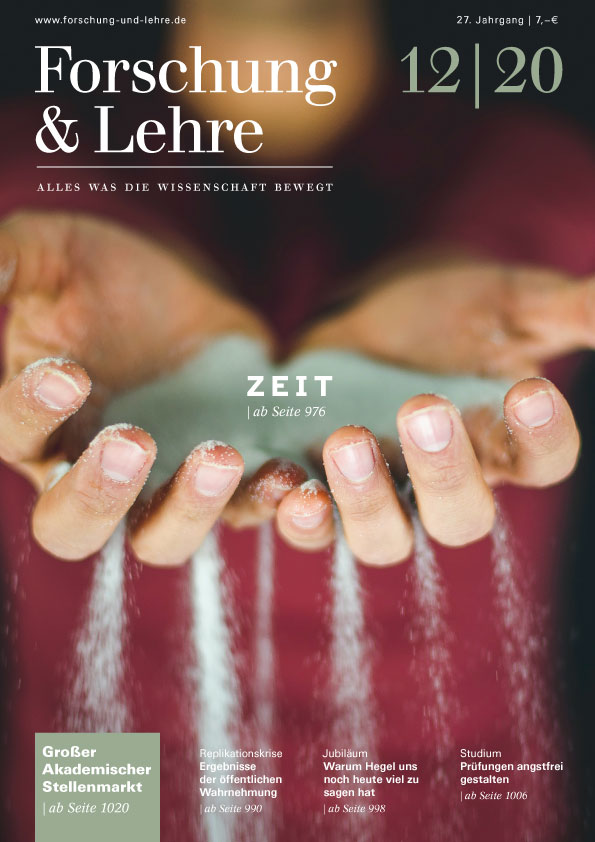 Die Zeit in ihrer Vielfalt denken. Anmerkungen aus philosophischer Perspektive
Die Zeit in ihrer Vielfalt denken. Anmerkungen aus philosophischer PerspektiveThe aim of this paper is to sketch an approach for integrating the historiography of the sciences and of philosophy. More precisely, the paper suggests a method for investigating interactions within transdisciplinary constellations of researchers working in philosophy and in the exact sciences. I start off by introducing specific notions of analogy, variation, and conceptual space which provide the main ingredients of this method. The notion of a conceptual space, as well as other characteristics of the present approach, are adaptations from so-called constellation research. Originally, constellation research was developed for the historiography of philosophy – especially in the context of the origins of German idealism. However, as I will argue in the second half of the paper, it is adaptable to the historiography of science, especially of the exact sciences. To support this claim and to illustrate the integrative power of the present approach, I will (i) compare the notions of a constellation and a conceptual space with Ludwik Fleck’s notions of a »thought collective« and a »style of thought«, (ii) critically evaluate the distinction between contexts of discovery and of justification in a historiographical context, and (iii) relate the notions of analogy and variation, as introduced in the first part of the paper, to current debates about what is sometimes called »invariantism« in the philosophy of science.
-
Rethinking Drug Design in the Artificial Intelligence Era
Artificial intelligence (AI) tools are increasingly being applied in drug discovery. While some protagonists point to vast opportunities potentially offered by such tools, others remain sceptical, waiting for a clear impact to be shown in drug discovery projects. The reality is probably somewhere in-between these extremes, yet it is clear that AI is providing new challenges not only for the scientists involved but also for the biopharma industry and its established processes for discovering and developing new medicines. This article presents the views of a diverse group of international experts on the ‘grand challenges’ in small-molecule drug discovery with AI and the approaches to address them.
-
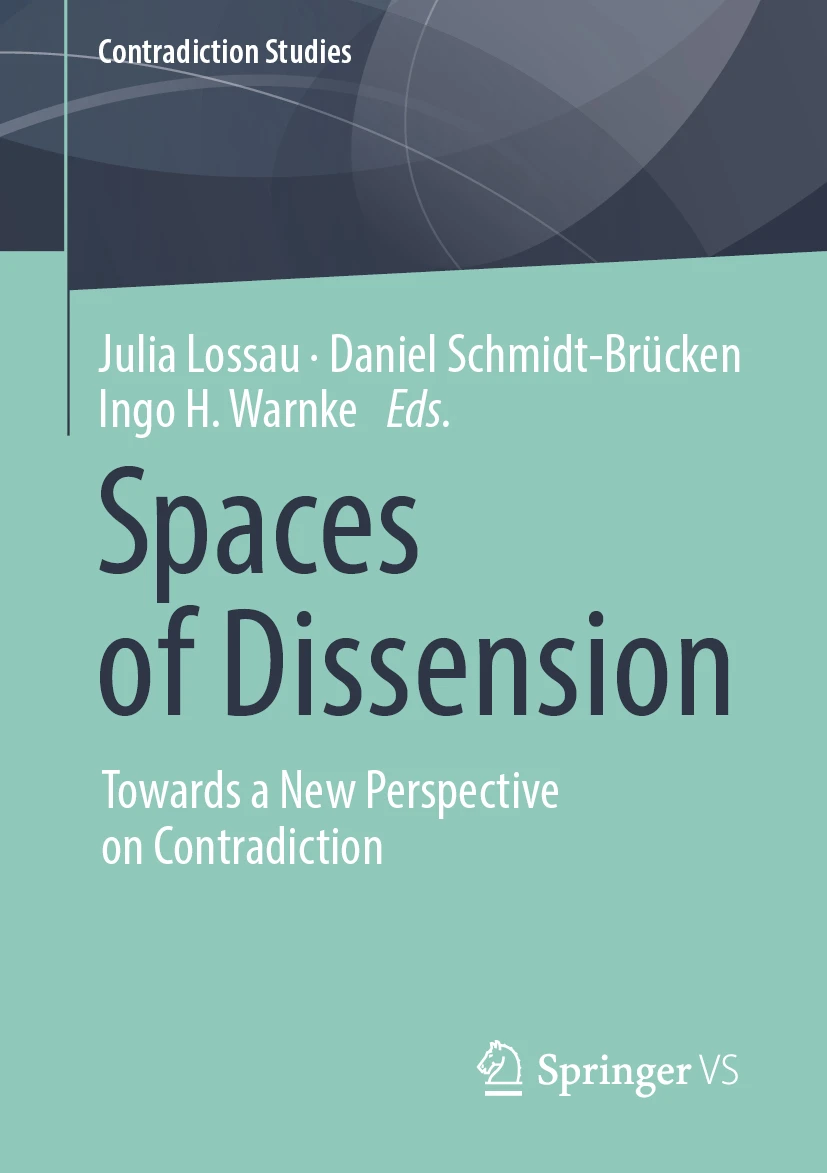 (In)Visible and (Un)Homely. Underground Infrastructures as Spaces of Dissension
(In)Visible and (Un)Homely. Underground Infrastructures as Spaces of DissensionCarving out the paradoxes of underground urban infrastructure, this paper attempts to establish a dialog between infrastructure studies, on the one hand, and Contradiction Studies, on the other hand. It starts from the premise that the technical and political characteristics of infrastructure are only thought of and made visible in case of failure or breakdown.
-
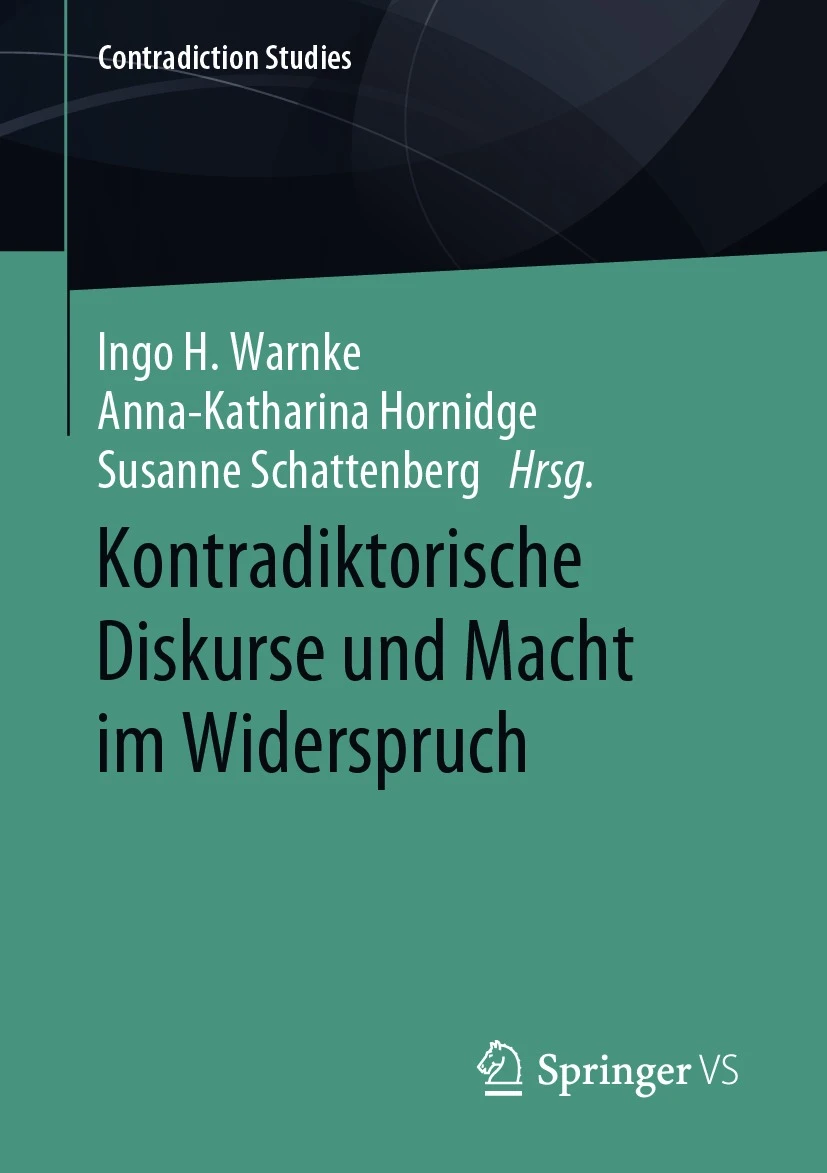 Kontradiktorische Diskurse und Macht im Widerspruch
Kontradiktorische Diskurse und Macht im WiderspruchDer Band behandelt in interdisziplinärer Perspektive Widerspruch unter anderem als einen konzeptionellen Anker von Diskursanalyse und -theorie. Widerspruch ist eine Figur der Ordnung von Wissen und damit Ausdruck von Machtverhältnissen. Akteur*innen, die Widersprüche identifizieren und als solche erst wahrnehmbar machen, sind ebenso in Dynamiken der Widerspruchsdeklaration verwoben wie das, was in einer Zeit als widersprüchlich bestimmt und bezeichnet wird. Die performative Dimension von Widerspruch unter Einschluss des Widersprechens verweist auf historische Normalitätsproduktionen und soziale Hierarchien, in denen das Widersprüchliche stets als Anlass zu seiner Auflösung verstanden wird.
-
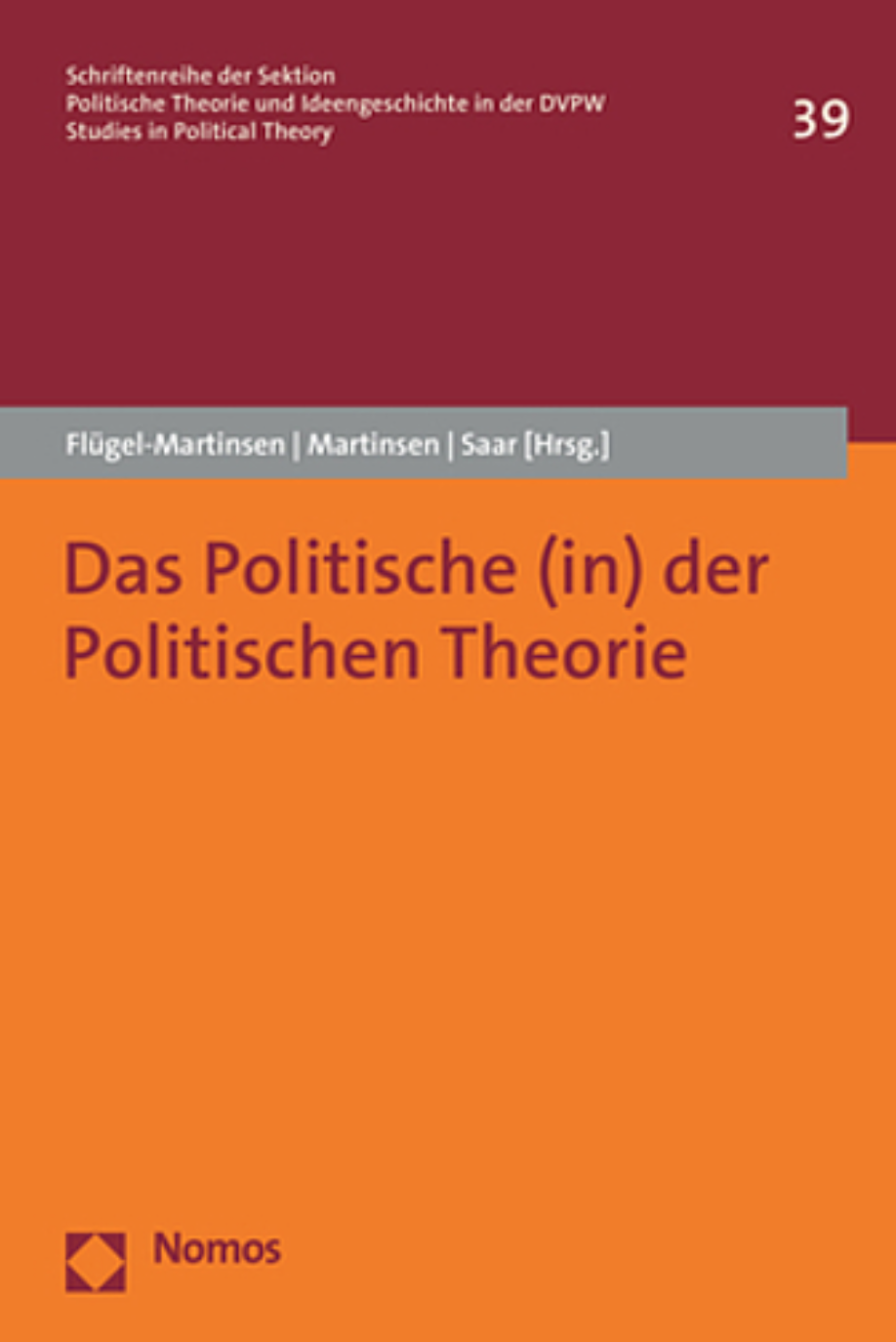 Das Politische und die Option auf Herrschaftskritik, oder: Populismus
Das Politische und die Option auf Herrschaftskritik, oder: Populismus
-
 Realismus, Groteske, Ethik des Überlebens in der aktuellen haitianischen gesellschaftskritischen Literatur am Beispiel von Kettly Pierre Mars
Realismus, Groteske, Ethik des Überlebens in der aktuellen haitianischen gesellschaftskritischen Literatur am Beispiel von Kettly Pierre Mars
-
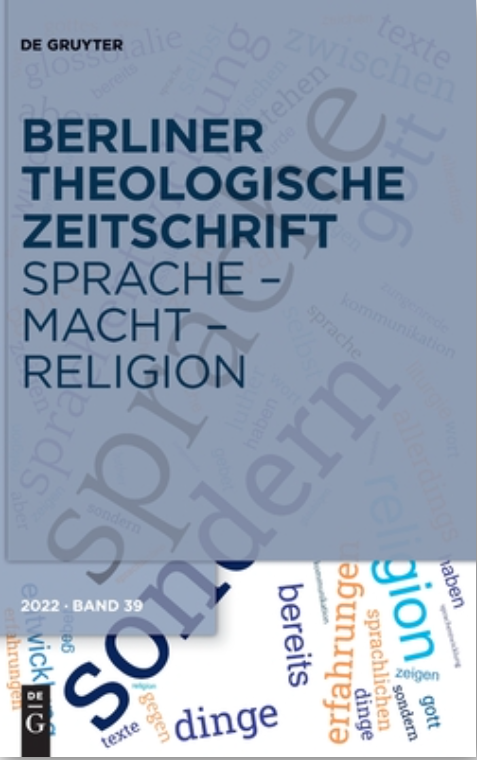 Religion im kolonialen Archiv
Religion im kolonialen Archiv
-
 Neues Wahrnehmen
Neues Wahrnehmen